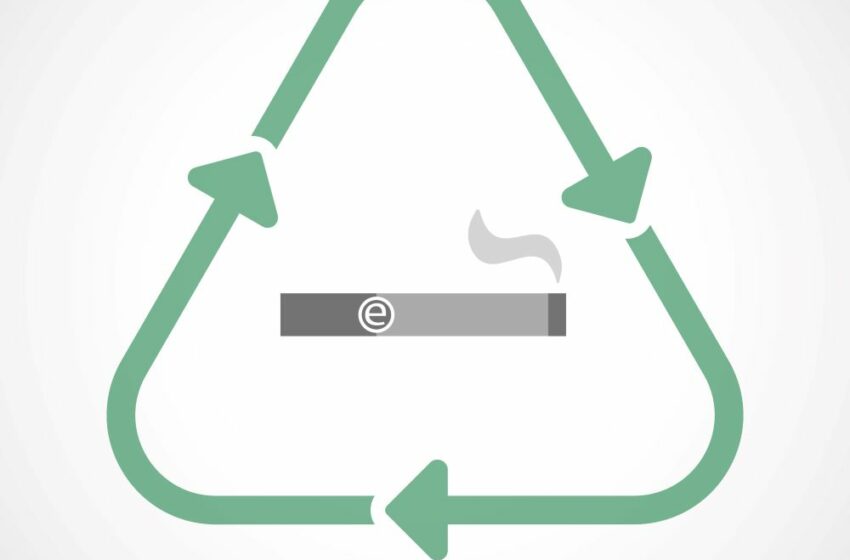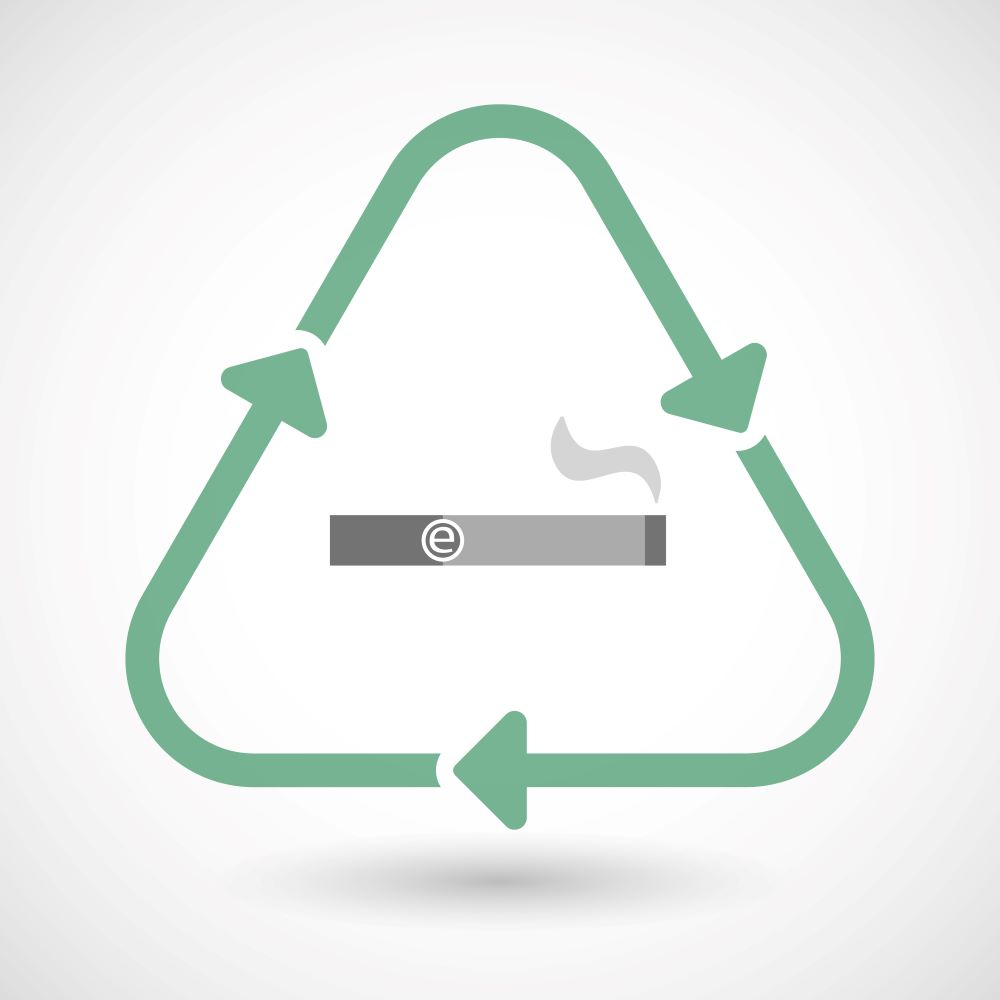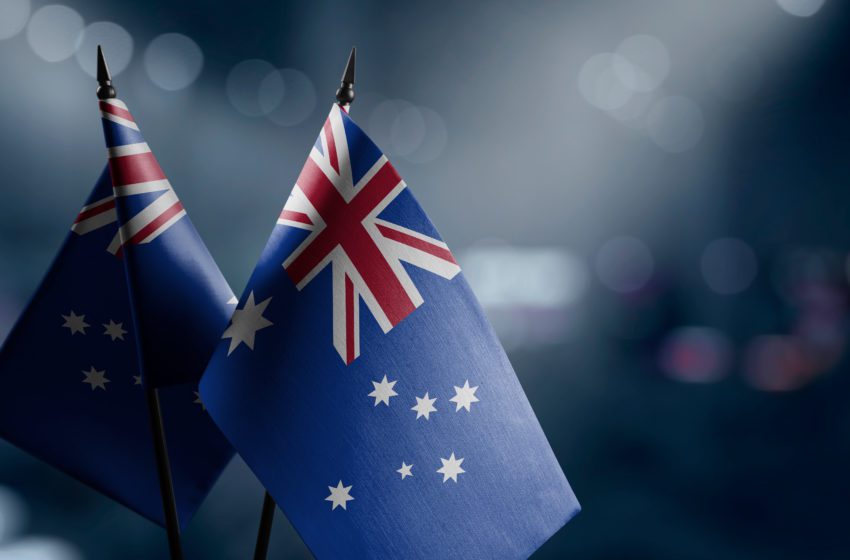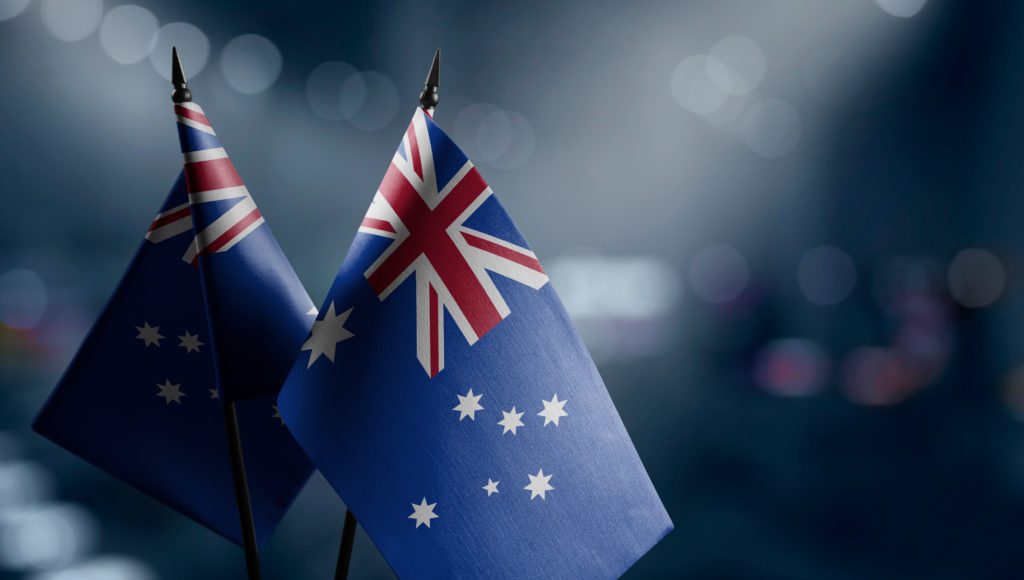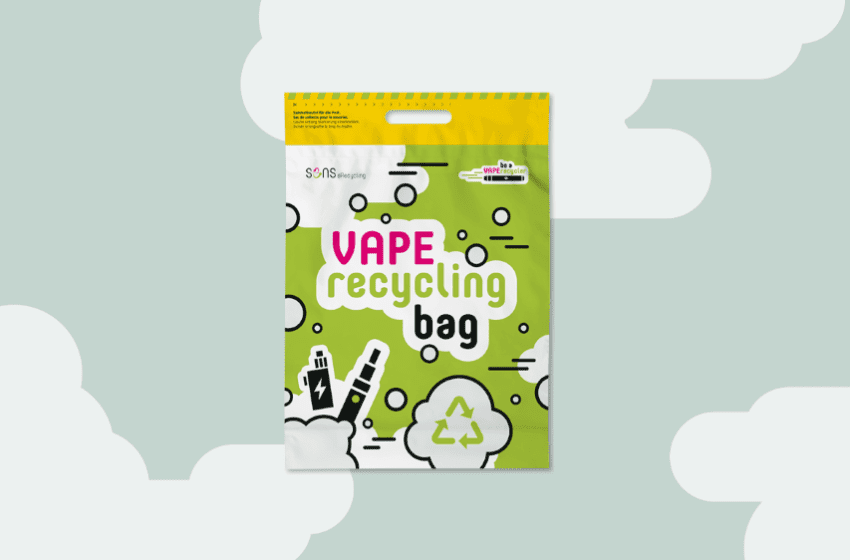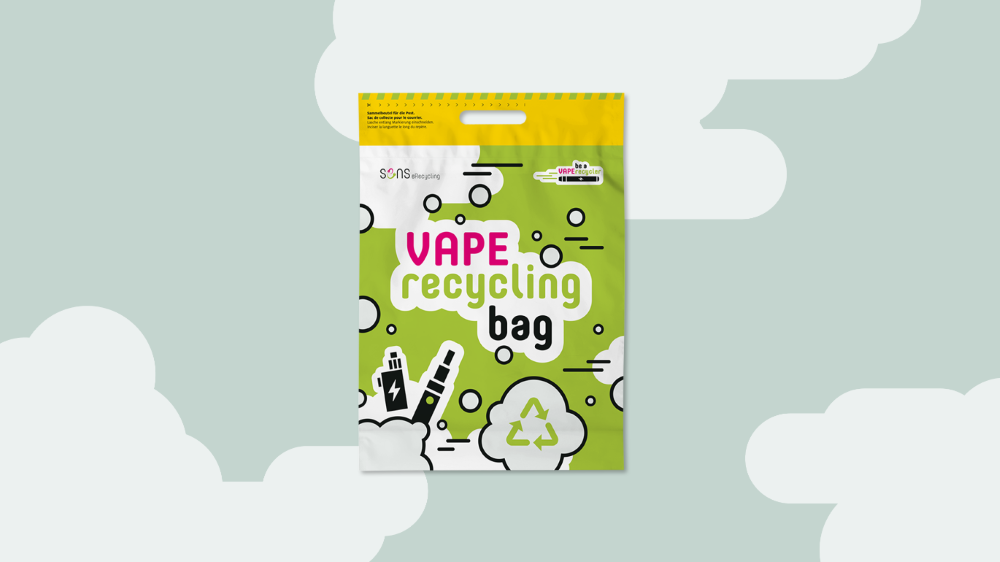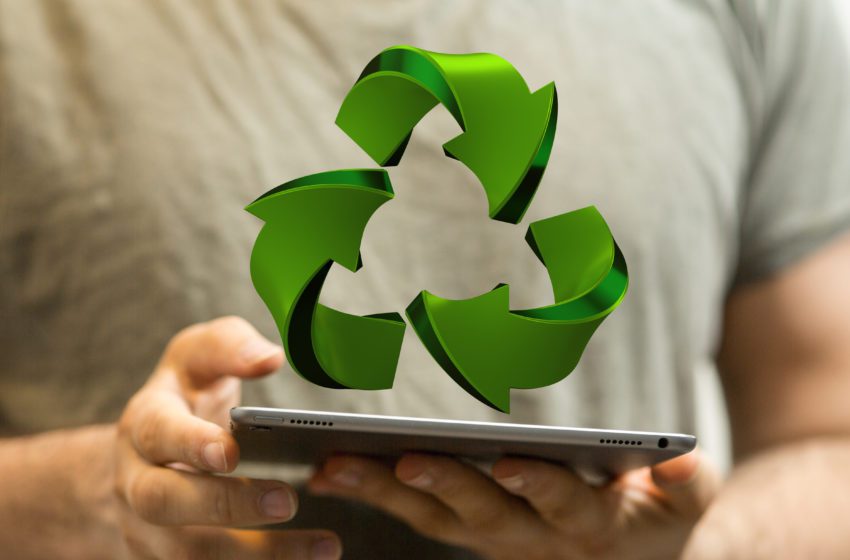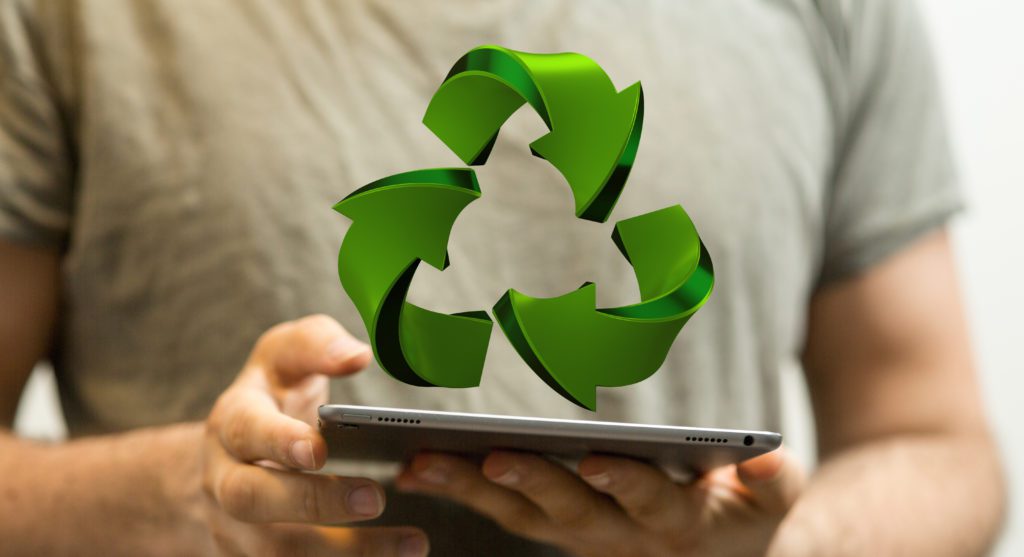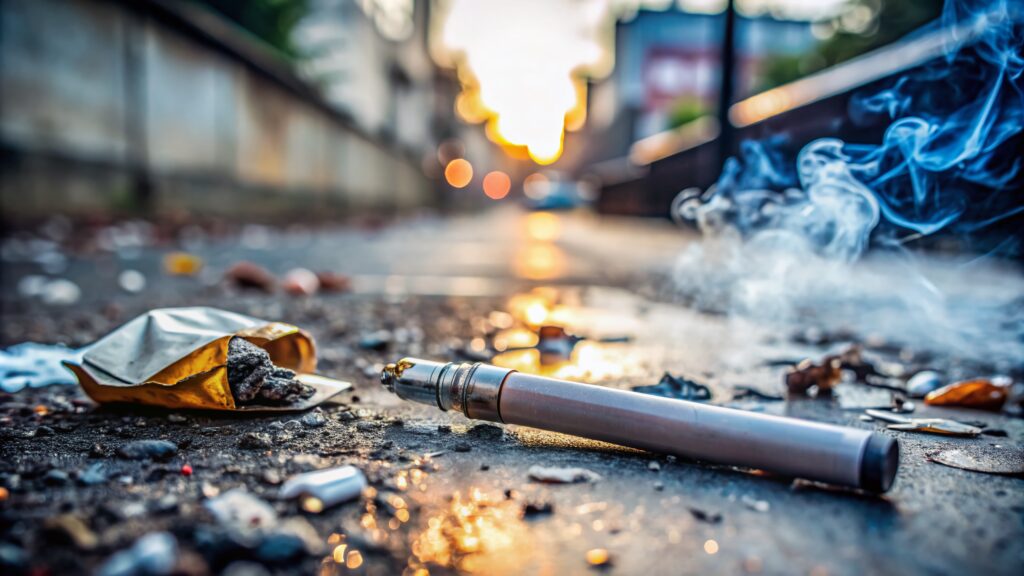
Finding solutions to hazardous waste from vaping products is a growing concern.
By Timothy S. Donahue
Disposing of vape waste is becoming an increasing environmental concern. The CDC Foundation, a nonprofit that supports the U.S. Centers for Disease Control and Prevention, estimates that each month in the U.S., consumers purchase 11.9 million disposable e-cigarettes.
Based on that figure, a report from the U.S. PIRG Education Fund, a nonpartisan consumer-interest group, estimates that the disposable vapes sold annually would stretch longer than 7,000 miles if lined up, more than twice the width of the continental U.S.
In addition to creating plenty of plastic waste, discarded e-cigarettes can be considered both e-waste (because of their circuitry and lithium-ion batteries) and hazardous waste (because they contain nicotine). E-cigarettes are also difficult to recycle, and many people don’t even try; garbology research has found evidence of plenty of vape litter. A 2022 survey found that just 8 percent of teen or young adult vapers sent their used disposable devices to recycling facilities.
Within the e-cigarette category, disposables “pose the highest potential environmental costs,” according to a 2018 paper in the American Journal of Public Health, because they aren’t used as long as refillable models. A 2022 letter in the Lancet Respiratory Medicine called for tighter regulations on single-use vapes to prevent “environmental disaster.”
In the meantime, the new report suggests that people who vape can make a simple switch to benefit the environment: choose reusable devices instead of those that go straight into the trash. “Nothing used for a day or two,” the report says, “should pollute our environment for hundreds of years.”
Emma Shalaway, marketing director at Sauce Essentials, a California-based cannabis company, said that one of the biggest challenges brands like Sauce faces in implementing recycling programs, particularly across state lines, is the lack of specific legislation regarding the recycling of products.
“For example, in California, there is really only legislation around the recycling of vape batteries, leaving a gray area for the complete recycling of all-in-one (AIO) vape products. This uncertainty makes it difficult for brands and retailers to navigate compliance when it comes to recycling programs even though we try to support by providing recycling bins in markets where initiatives like this are allowed,” explains Shalaway. “To push for better recycling infrastructure, we need specific legislation tailored to AIO cannabis vapes across state lines. Given the number of regulatory hurdles already present in bringing AIO cannabis vapes to market, it only makes sense to create clear guidelines for their proper recycling.”
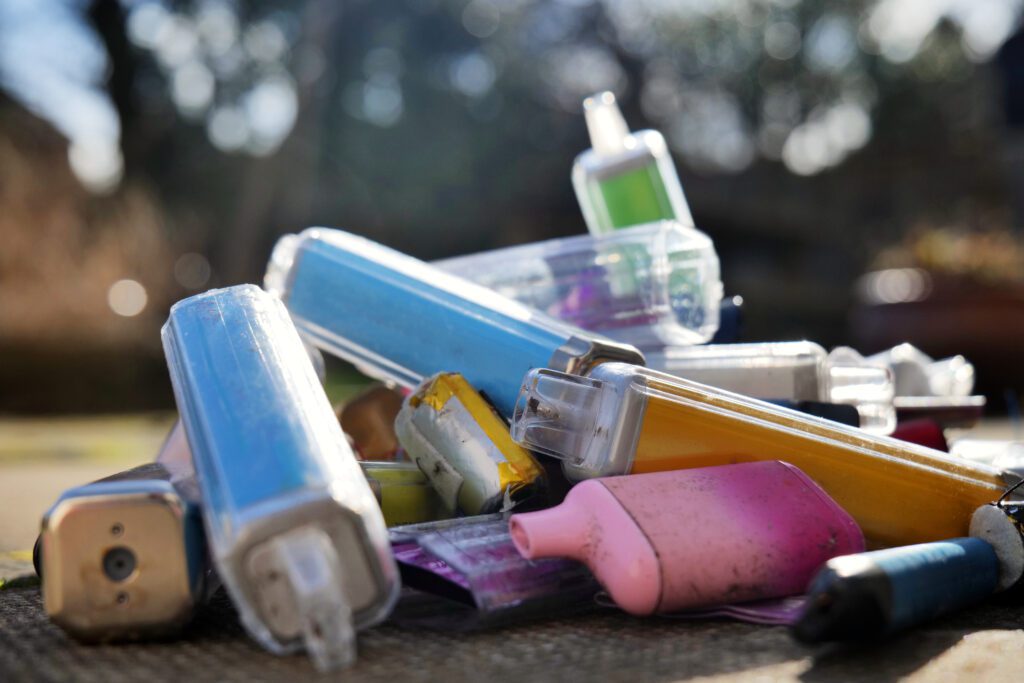
Douglas Dunlap, chief commercial officer at Greentank, a Canada-based atomization company, told Vapor Voice that recycling programs in the vaping industry are challenging due to the need for collaboration between hardware manufacturers, distributors, retailers and recycling services. Many brands lack control over the retail environment, which makes consumer education efforts on product recyclability difficult.
“Establishing a consistent, user-friendly recycling initiative often requires buy-in from retail partners, including their willingness to promote and facilitate collection efforts at the point of sale. At Greentank, we’re constantly innovating to make our products cleaner and more environmentally friendly by sourcing sustainable materials and minimizing waste,” said Dunlap. “However, broader systemic changes are needed. State and local regulations often make recycling programs costly due to concerns about handling controlled substances. Reviewing these policies or specific recycling guidelines for vape products would significantly benefit brands, manufacturers and consumers, making it easier to create eco-friendly solutions.”
According to the CDC Foundation, after the U.S. Food and Drug Administration’s February 2020 crackdown on flavored nicotine e-liquid cartridges for reusable vapes, sales of disposable brands increased 196.2 percent by March 2023. The FDA’s decision prohibited the sale of flavored prefilled nicotine vape cartridges exemplified by popular brand Juul but didn’t mention disposable vapes. This omission created a gray market, and by March, sales of disposable products increased to 11.9 million units a month and had overtaken the cartridges market share at 53 percent of vape sales. At this rate, consumers throw out 4.5 disposable vapes per second.
This vape waste is becoming more common while cigarette butts become less common as the trash that litters our beaches and waterways. It seems we’ve gone from bad to worse. While cigarette pollution takes up to 10 years to degrade, disposable vapes are nonbiodegradable and “endanger ocean creatures that inadvertently consume the plastics.”
Electronics often contain hazardous materials, such as the heavy metals lead and mercury. According to the U.N., “recycling activities are not keeping pace with the global growth of e-waste.” The agency’s report found that just 9.4 percent of e-waste is recycled in the Americas. It’s not just a capacity problem. We don’t have the technology to magically melt complex products such as disposable vapes back into their component parts.
Disposable vapes are encased in plastic shells that never fully degrade. They follow in the footsteps of other environmentally harmful single-use pod products, such as coffee pods or even pod-using hair dye.
Due to the nicotine e-liquid used in these products, vape waste can’t be recycled with other plastics because the Environmental Protection Agency defines the substance as an acute hazardous waste.
Disposable vapes cannot be reused, recycled properly, or legally thrown in the trash. The lithium used in the batteries in disposable vapes sold yearly weighs 23.6 tons, equivalent to the lithium needed to create batteries for 2,600 electric vehicles.
According to Dunlap, brands can play a key role by partnering with reputable hardware providers that prioritize safety and sustainability, like Greentank. When selecting hardware components, it’s important to consider eco-friendly materials such as wood, metal, ceramic, glass and PLA.
“We encourage brands to think beyond the immediate product and consider the life cycle, including its environmental impact and long-term consumer experience,” he said. “[Marijuana] dispensaries have a unique opportunity to drive change by collaborating with recycling services and offering incentives for recyclable products.
“Vape consumers often have strong loyalty to their local dispensaries and budtenders, making these locations ideal for education and promotion. With dispensaries empowering consumers to recycle, we could see a growing demand for sustainable products and more forward-thinking regulations.”
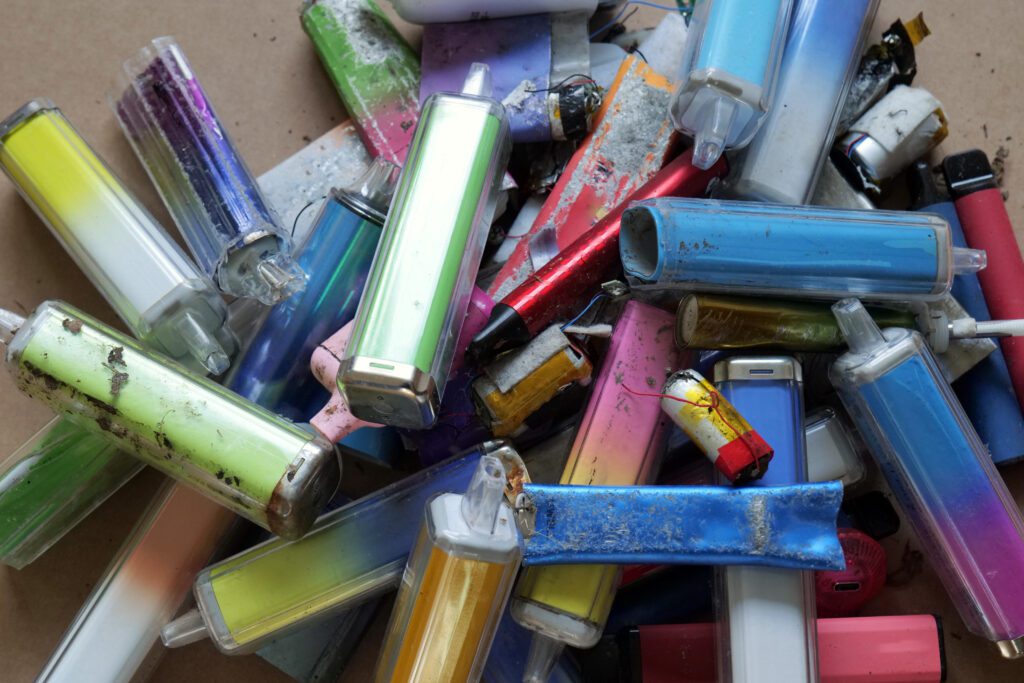
While many states and cities have banned flavored vapes, few have wholly banned vapes, and none have explicitly targeted disposable products. Flavor bans, which replicate the same omission perpetrated by the FDA, have allowed the disposable gray market to thrive. More states and cities should follow their mandates to protect health and the environment by definitively banning disposables.
Shalaway said that brands should take responsibility for the products they introduce to the market and advocate for local legislation that enables manufacturers to be accountable for this part of the supply chain.
“We actively seek opportunities to engage with our communities through environmental initiatives like beach cleanups,” she said. “We are eager to collaborate with industry-focused organizations to help grow this side of the industry.
“Recycling programs can often fail because consumers lack the motivation to participate—even with the convenience of a blue bin. To address this, our goal in the future is to reduce barriers by displaying recycling bins at retail locations and offer incentives, such as discounts on future purchases when consumers recycle a certain number of AIO vapes.
“By making recycling more accessible and rewarding, we hope to encourage greater participation and accountability.”

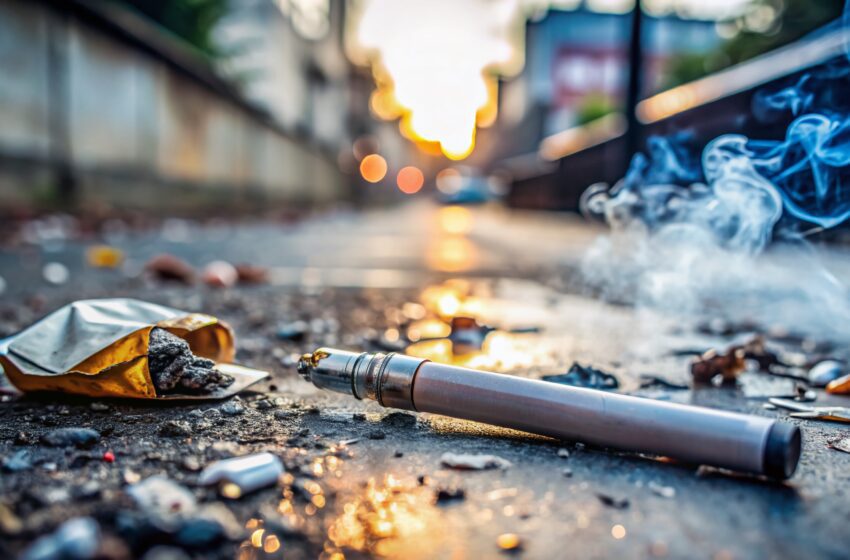
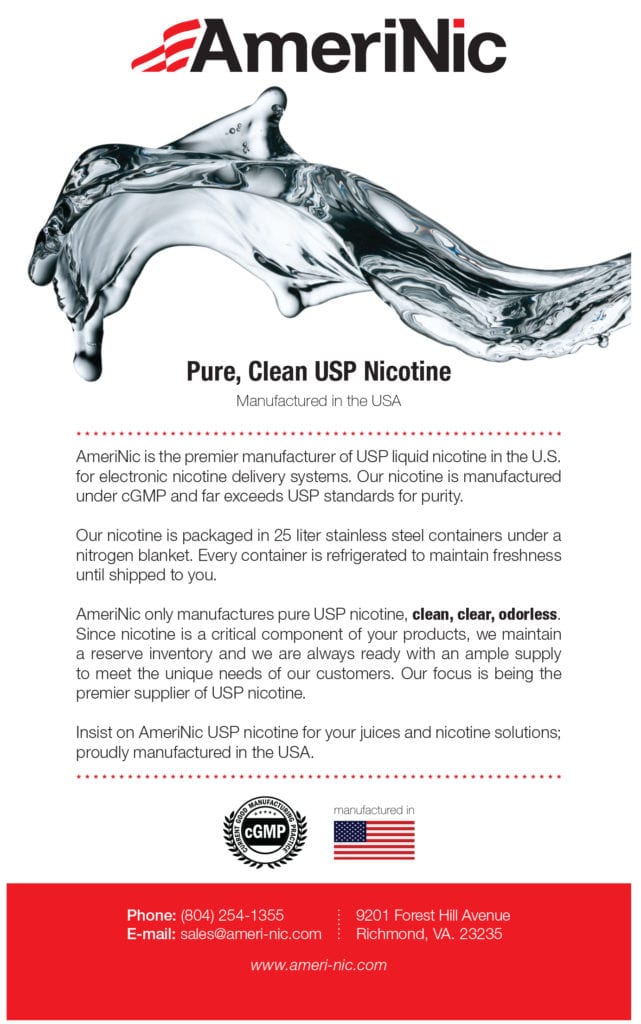
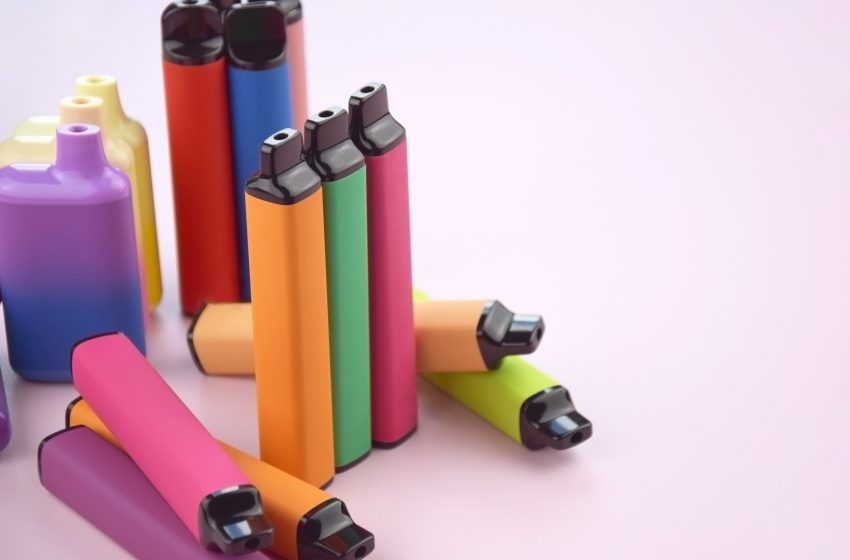






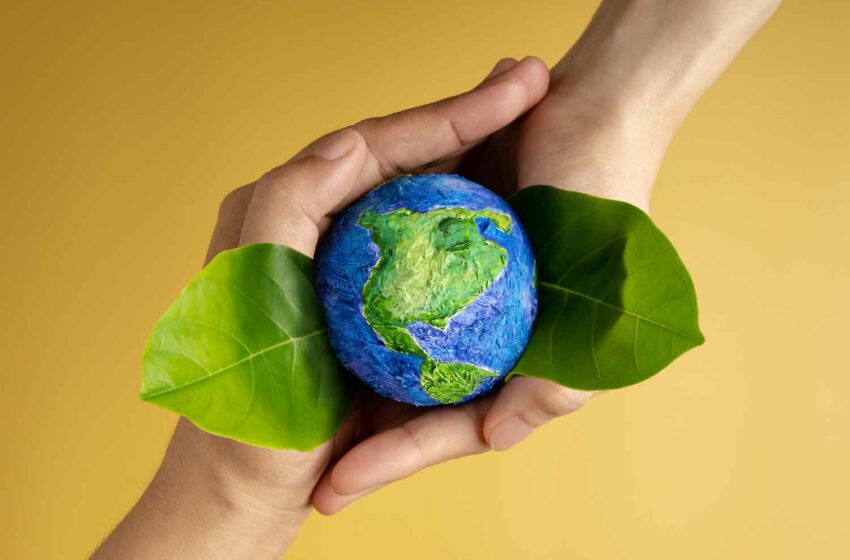
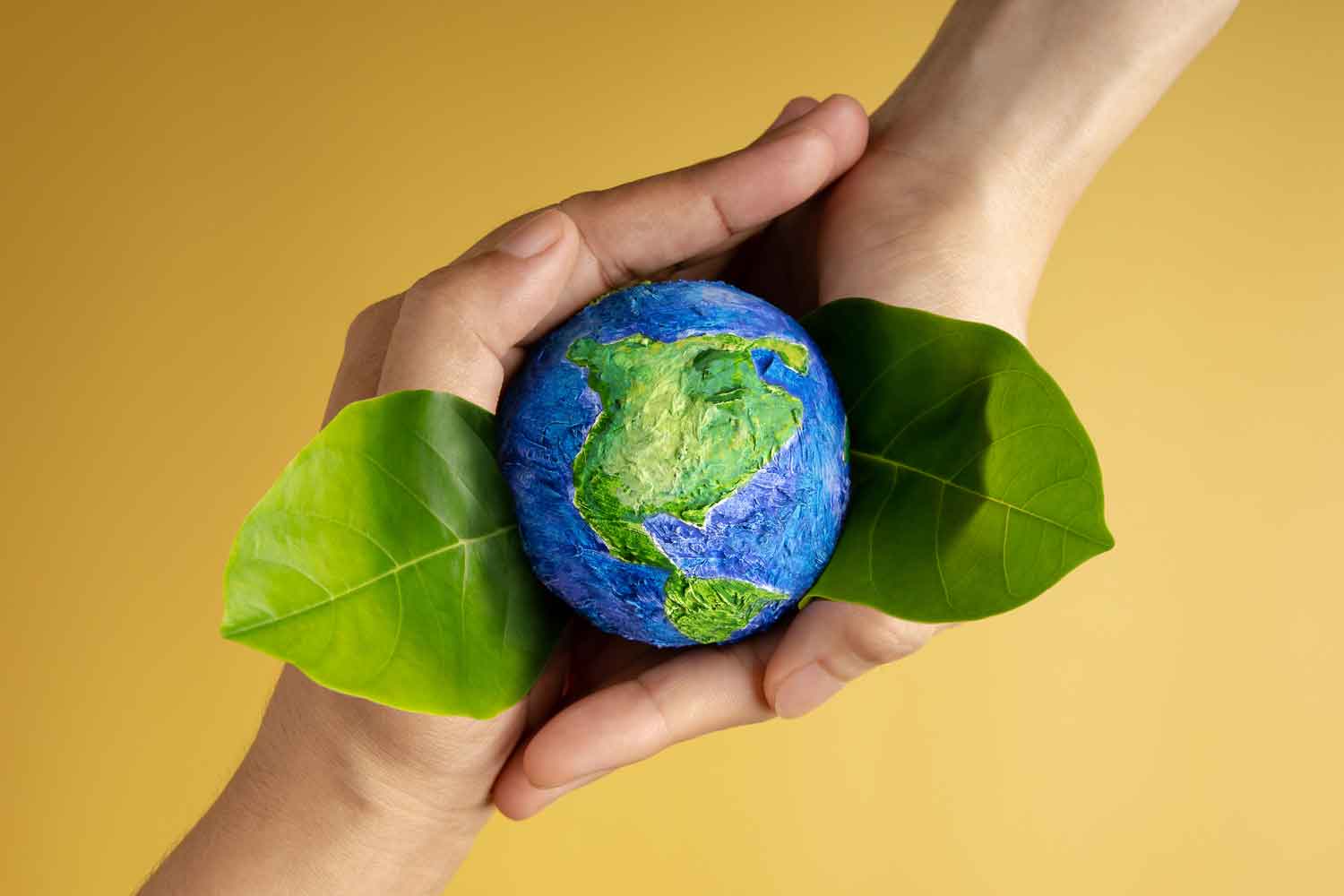

 RLX Technology presented its “
RLX Technology presented its “